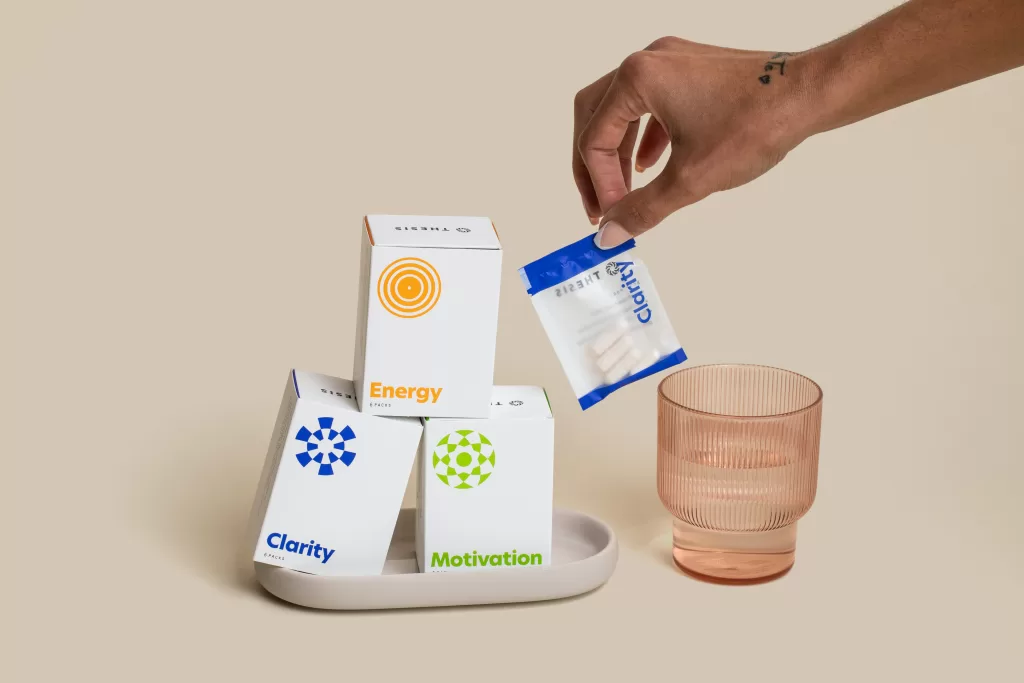Can I Take NAD+ with Other Medications or Supplements?
08/21/2023

You may have heard about the amazing benefits of NAD+ and are wondering if you can take it alongside your other medications or supplements. Well, I'm here to shed some light on this topic and help you navigate the wonderful world of NAD+!

Understanding NAD+ and Its Role in the Body
Before we dive into the interactions of NAD+ with medications and supplements, let's first understand what NAD+ is and its vital role in the body. NAD+ stands for Nicotinamide Adenine Dinucleotide, a coenzyme that plays a crucial role in various cellular processes, including energy production, DNA repair, and cell signaling. Essentially, it's like the superhero of your body, keeping things in balance and ensuring everything runs smoothly!
NAD+ is a natural compound that is found in every cell of your body. It is an essential coenzyme that helps enzymes in your body carry out vital functions. Think of it as the fuel that powers your body's engine!
Now that we know what NAD+ is, let's talk about its incredible health benefits. NAD+ has been shown to boost mitochondrial function, improve cellular metabolism, and increase energy levels. It also has anti-aging properties, aids in DNA repair, and supports brain health. With all these benefits, it's no wonder that NAD+ has become a hot topic in the health and wellness world!
What is NAD+?
NAD+ is a coenzyme that belongs to the family of molecules known as nucleotides. It is derived from vitamin B3, also known as niacin, which is an essential nutrient for the body. NAD+ exists in two forms: NAD+ and NADH. The former is the oxidized form, while the latter is the reduced form. Both forms play critical roles in cellular metabolism and energy production.
Within the cell, NAD+ acts as a coenzyme for several enzymes involved in various metabolic pathways. One of its primary functions is to facilitate the transfer of electrons during cellular respiration, the process by which cells convert nutrients into energy. NAD+ accepts electrons from other molecules and transports them to the electron transport chain, where they are used to generate ATP, the energy currency of the cell.
In addition to its role in energy production, NAD+ is also involved in DNA repair. When DNA is damaged, NAD+ is required for the activation of enzymes that repair the DNA strand. This process is crucial for maintaining the integrity of the genetic material and preventing mutations that can lead to diseases such as cancer.
Health Benefits of NAD+
The health benefits of NAD+ are vast and encompass various aspects of cellular function. One of the most significant benefits is its ability to boost mitochondrial function. Mitochondria are the powerhouses of the cell, responsible for generating the majority of the cell's energy. NAD+ plays a crucial role in the electron transport chain, the final step of cellular respiration, where it helps shuttle electrons and generate ATP.
Furthermore, NAD+ has been shown to improve cellular metabolism, particularly in relation to glucose and lipid metabolism. It enhances the breakdown of glucose and fatty acids, promoting efficient energy production and preventing the accumulation of excess fat in the body. This metabolic boost can have a positive impact on weight management and overall metabolic health.
In addition to its role in energy production and metabolism, NAD+ has garnered attention for its anti-aging properties. As we age, NAD+ levels naturally decline, leading to a decrease in mitochondrial function and cellular energy production. By supplementing with NAD+, it is believed that we can reverse some of these age-related changes and promote healthier aging.
Moreover, NAD+ is involved in DNA repair mechanisms, which are crucial for maintaining genomic stability. It activates enzymes called sirtuins, which play a key role in repairing DNA damage and preventing the accumulation of mutations. This DNA repair function is essential for preventing the development of cancer and other genetic diseases.
Lastly, NAD+ has been shown to support brain health and cognitive function. It plays a role in the regulation of neurotransmitters, the chemical messengers that allow communication between brain cells. By maintaining optimal NAD+ levels, we can support healthy brain function and potentially reduce the risk of neurodegenerative diseases such as Alzheimer's and Parkinson's.
In conclusion, NAD+ is a vital coenzyme that plays a multifaceted role in the body. From energy production to DNA repair and brain health, its benefits are far-reaching. As research continues to unravel the intricacies of NAD+, it is becoming increasingly clear that this molecule is not only essential for our well-being but also holds great potential for therapeutic interventions.
Interactions of NAD+ with Medications
Now, let's delve deeper into the potential interactions between NAD+ and medications. It's crucial to note that NAD+ supplementation is generally considered safe and doesn't interact with most medications. However, it's always prudent to be aware of any possible interactions, especially if you are taking certain medications.
When considering NAD+ supplementation, it's important to consult with your healthcare provider, particularly if you are taking medications such as anti-inflammatory drugs, blood thinners, or certain cancer medications. Your healthcare provider can assess your specific situation, taking into account your medical history and current medication regimen, and provide personalized guidance. This ensures that you make informed decisions about your health and well-being.
While NAD+ is generally well-tolerated, it's essential to be aware of potential risks and side effects. It's worth noting that the majority of individuals who supplement with NAD+ experience minimal to no side effects. However, as with any supplement or medication, there is a possibility of experiencing some adverse effects.
Some individuals may experience minor side effects such as nausea, headache, or gastrointestinal discomfort when initiating NAD+ supplementation. These side effects are usually temporary and subside as your body adjusts to the supplementation. It's important to remember that everyone's body is unique, and individual responses to NAD+ supplementation may vary.
If you do experience any severe or persisting side effects, it's crucial to seek medical attention immediately. Your healthcare provider can evaluate your symptoms and determine the appropriate course of action. It's always better to err on the side of caution when it comes to your health.
In conclusion, while NAD+ supplementation is generally safe and doesn't interact with most medications, it's essential to consult with your healthcare provider if you are taking certain medications. Additionally, being aware of potential risks and side effects can help you make informed decisions about incorporating NAD+ into your wellness routine. Remember, your healthcare provider is your best resource for personalized guidance and support.
Interactions of NAD+ with Supplements
Now, let's explore how NAD+ interacts with supplements. As with medications, NAD+ supplementation is generally safe and doesn't interact with most supplements. However, it's always a good idea to exercise caution and do your research before combining NAD+ with other supplements.
When it comes to the interactions between NAD+ and supplements, there are a few popular supplements that may potentially interact with NAD+. One such supplement is high-dose niacin. Niacin, also known as vitamin B3, is often used to support cardiovascular health and boost energy levels. However, when taken in high doses, niacin can increase NAD+ levels in the body, potentially leading to an excessive accumulation. It's crucial to read the labels, check the dosage recommendations, and, once again, consult with your healthcare provider before starting any new supplement regimen. Your healthcare provider will be able to guide you based on your individual needs and goals.
In addition to high-dose niacin, certain antioxidants may also interact with NAD+. Antioxidants, such as vitamin C and vitamin E, are known for their ability to neutralize harmful free radicals in the body. While these antioxidants are generally beneficial, some studies suggest that they may interfere with the activity of NAD+. As with any supplement, it's important to be aware of the potential interactions and consult with your healthcare provider to ensure the safe and effective use of NAD+ and antioxidants together.
When combining NAD+ with other supplements, it's essential to take certain precautions. It's recommended to start with low doses of both NAD+ and the supplement you wish to combine it with, and gradually increase the dosage as needed. This allows you to monitor your body's response and ensure that you don't experience any adverse reactions. Additionally, keeping a food and supplement diary can be helpful in tracking any potential interactions or unexpected effects that may arise from combining NAD+ with other supplements.
Remember, everyone's body is unique, and what works for one person may not work for another. It's always best to consult with a healthcare professional who can provide personalized advice based on your specific circumstances. By taking the necessary precautions and seeking guidance, you can safely explore the interactions of NAD+ with supplements and make informed decisions about your health and wellness.
Consulting Your Healthcare Provider
By now, you might be thinking, "When should I consult my healthcare provider?" Well, my friend, the answer is simple – always! When it comes to incorporating any new supplement, including NAD+, into your routine, it's crucial to involve your trusted healthcare provider in the decision-making process.

Importance of Discussing Supplement Use with Your Doctor
Your healthcare provider knows your medical history, current medications, and individual circumstances, making them the best person to guide you. By discussing your supplement use with your doctor, you can ensure that you're making informed choices and taking the necessary precautions to protect your health.
Preparing for Your Doctor's Appointment
Before your doctor's appointment, be prepared to provide detailed information about the supplements you're taking, including NAD+. Share your goals, concerns, and any side effects you may have experienced. This will help your doctor evaluate the potential interactions, risks, and benefits specific to your situation.
Safe Practices for NAD+ Consumption
Now that we've covered the interactions of NAD+ with medications and supplements, let's end on a positive note. Here are some safe practices to follow when consuming NAD+:
Recommended Dosage of NAD+
When starting NAD+ supplementation, it's important to follow the recommended dosage guidelines provided by the manufacturer or your healthcare provider. Starting with a lower dosage allows your body to adjust and ensures you find the optimal level of supplementation.
Tips for Safe and Effective Use of NAD+
To maximize the benefits of NAD+ and ensure its safe use, consider the following tips:
- Choose reputable sources for NAD+ supplements.
- Read and follow the product instructions carefully.
- Monitor your body's response and adjust the dosage if needed.
- Stay well-hydrated throughout the supplementation period.
- Keep an open line of communication with your healthcare provider.
Remember, NAD+ is a wonderful addition to your wellness routine, but it's essential to use it responsibly and with guidance from professionals. Your health is a priority, so make sure to prioritize it!
So, can you take NAD+ with other medications or supplements? In many cases, the answer is yes! Just be sure to consult with your healthcare provider, be mindful of potential interactions, and follow safe practices. With that said, go ahead and explore the incredible benefits of NAD+ – your body will thank you!

 Back to Blog
Back to Blog